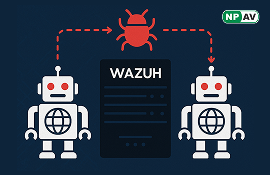Security
-
Read moreA significant security vulnerability (CVE-2025-6029) in KIA Ecuador's keyless entry systems exposes thousands of vehicles to theft. Learn about the risks, attack methods, and recommendations for consumers.
-
Read moreGreyNoise warns of coordinated brute-force attacks on Apache Tomcat Manager interfaces, involving 295 malicious IPs. Learn about the risks and recommended security measures.
-
Read moreThe Indian government has issued a high-severity alert regarding vulnerabilities in devices using MediaTek processors. Learn about affected devices, security risks, and recommended actions.
-
Read moreAdobe has issued a security update addressing 254 vulnerabilities, primarily affecting Adobe Experience Manager. Learn about the critical flaws and how to protect your software.
-
Posted: June 10, 2025Views: 109Read moreDiscover how a China-linked cyber espionage group, including APT15 and UNC5174, targeted over 70 organizations across government, media, and other sectors. Learn about the malware used, including ShadowPad and GoReShell, and the exploited vulnerabilities.
-
Read moreDiscover how two separate botnets exploit the critical Wazuh Server vulnerability (CVE-2025-24016) to launch Mirai-based DDoS attacks, targeting IoT devices and highlighting the urgency of cybersecurity measures.
-
Posted: June 09, 2025Views: 552Read moreDiscover how OpenAI has banned ChatGPT accounts associated with Russian, Iranian, and Chinese hacker groups. Learn about the malicious activities, including malware development and social media manipulation, and explore the implications for cybersecurity.
-
Read moreCybersecurity experts reveal a significant supply chain attack affecting npm and PyPI ecosystems, compromising numerous packages and exposing millions of users to malware. Learn about the affected packages and how to protect yourself.
-
Read moreDiscover significant security vulnerabilities in popular Chrome extensions that expose sensitive user data through unencrypted transmission and hardcoded credentials. Learn how to protect yourself from potential privacy breaches
-
Read moreLuxury under threat: Cartier, the prestigious fashion house, has revealed a data breach following a cyberattack that compromised personal customer data. The breach is part of a broader wave of cyber threats hitting global fashion brands, raising concerns about how high-end retail is being exploited for customer data.














